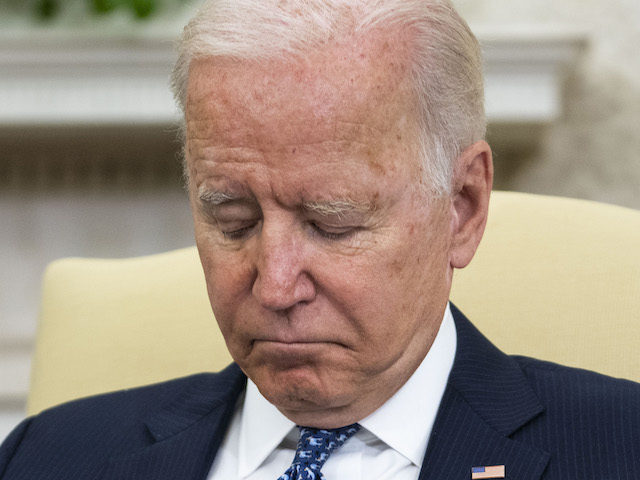|

KEY TAKEAWAYS
The problem with maximum restraint is that it can let a manageable foreign problem fester and grow into a tremendous problem.
By following these impulses to 1) do nothing and 2) tell everyone else what to do, Biden believes he is reducing risk and making a better world.
When will U.S. foreign policy get better instead of worse? The answer is: When the administration starts dealing with risks, rather than ignoring them.
President Joe Biden's foreign policy is a toxic mix of ideas from both extremes of the political spectrum.
On the one hand, Biden and company have embraced the Obama era policy of maximum restraint. The idea is that the less the U.S. engages in foreign affairs, the fewer problems it will have to deal with.
The problem with maximum restraint is that it can let a manageable foreign problem fester and grow into a tremendous problem. It’s like when a homeowner keeps putting off fixing a leaky roof; one day the ceiling will collapse.
Get exclusive insider information from Heritage experts delivered straight to your inbox each week. Subscribe to The Agenda >>
Maximum restraint can also lead to precipitous withdrawal from foreign engagements. This too can be disastrous. For example, Obama precipitously withdrew from Iraq, and ISIS promptly filled the vacuum. Biden did the same in Afghanistan, and we now know that Al Qaeda has already reestablished a foothold there.
The reality is: Whenever America walks away, our adversaries happily fill in. Just look at what happened at our southern border. As soon as Biden reversed all of Trump’s border security measures, the cartels started lining up people to come across.
On the other hand, Biden is often over-eager to engage on the world stage, turning American interests over to globalist management. The idea is that we can make the world safer, more equitable and more just if we follow the wisdom of global elites and govern according to international agreements on everything from climate policy and tax policy to labor policy and the treatment of women.
The problem with this is that it can sacrifice our national interests—and our sovereignty—abiding by international compacts that our enemies ignore, and our friends find preposterous. For example, the Chinese have zero intent of following the U.S. into the abyss of "net zero" green energy policy. To keep their economy growing, they are building coal plants right and left.
Yet, Biden persists in thinking that he and other leaders of developed nations can establish global "norms" by pledging to follow the dictates of Davos. This is like the little kid sitting in a grocery cart who thinks he is steering down the aisle.
By following these impulses to 1) do nothing and 2) tell everyone else what to do, Biden believes he is reducing risk and making a better world. In reality, what he has is a schizophrenic foreign policy that has increased global risk and left our friends and allies dazed and confused.
The most recent victim of this approach was House Speaker Nancy Pelosi. Her trip to Taiwan was important. And the stakes were high. China is America’s No. 1 threat, and Taiwan is the most serious issue that divides us. One would think every step the president would take would be serious, deliberate and proactive, because that is how serious people deal with serious risks. Not Joe.
His first instinct was to try to make the problem go away. So, he asked Pelosi to cancel the visit. This would have been a big slap in the face to Taiwan and a huge loss of face for the U.S.
When Pelosi refused, Biden then called Chinese President Xi Jinping and, after meekly reassuring him that the U.S. still clings to the "One China Policy." asked him to back down from his regime’s saber-rattling rhetoric opposing the trip. Again, no effect.
Indeed, throughout the crisis, Biden came across—to China, to Taiwan, to Pelosi and the rest of the world—as little more than a do-nothing Bystander-in-Chief. (Though, in fairness, he did tweet afterward.)
Once Pelosi left, China ramped-up its "wolf warrior" diplomacy ringing Taiwan with live fire drills. The administration response was mostly finger-waving at the Chinese, tut-tutting that they were not following the international norms as approved by our globalist overlords in Davos. Beijing must still be laughing.
But this is no laughing matter. Just ask Ukraine. When Putin threatened to invade, Biden tried the mix of do nothing, threatening with a handful of sanctions, and finger-waving about international norms. Rather than being deterred, Russia started a war that has harmed our economy and lowered our national security.
When will U.S. foreign policy get better instead of worse? The answer is: When the administration starts dealing with risks, rather than ignoring them.
|



